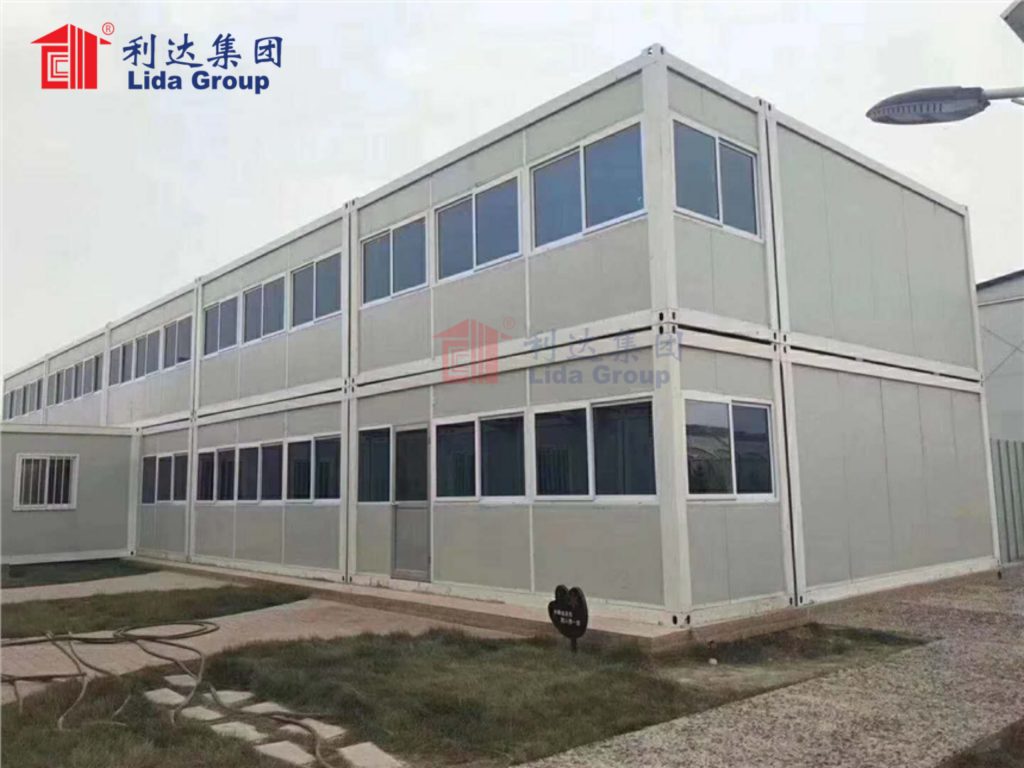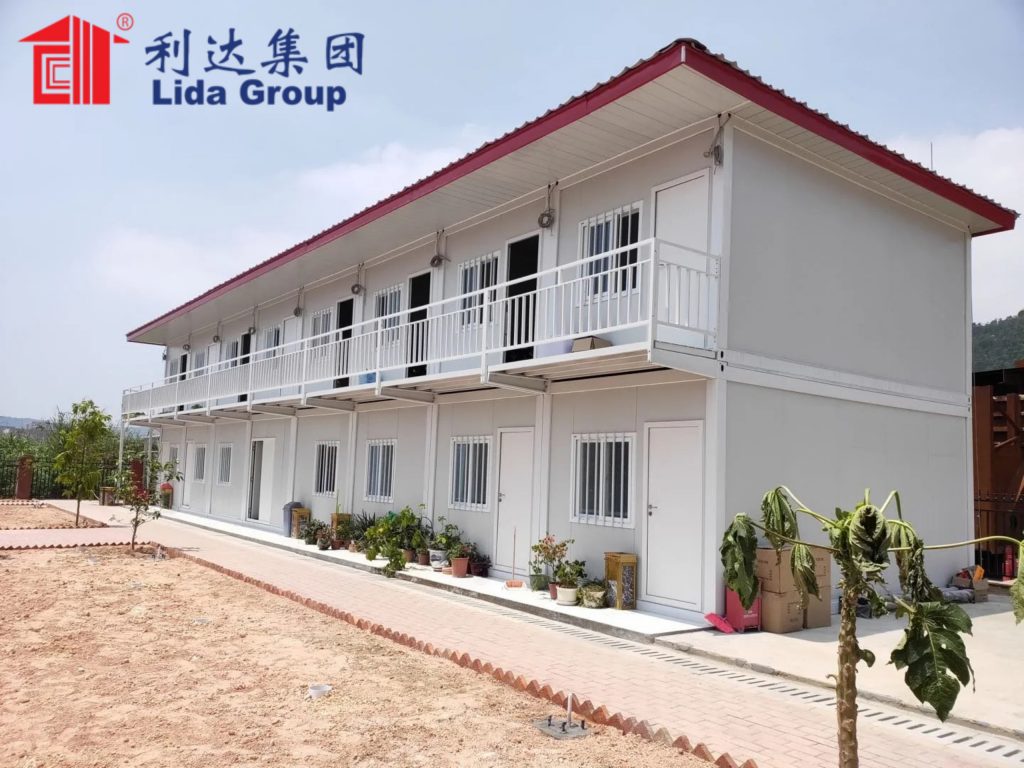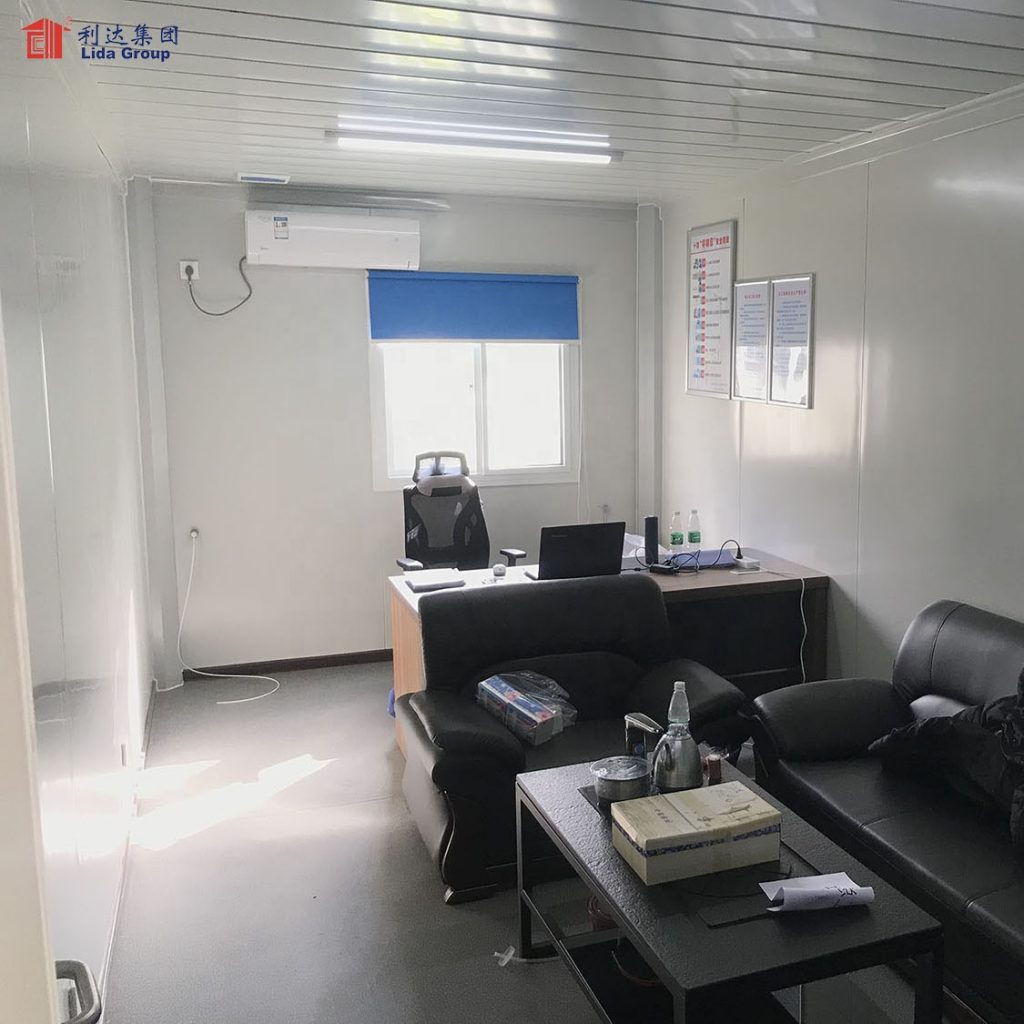Container-Based Construction: A Viable Temporary Housing Solution
As natural disasters increasingly displace vulnerable populations, humanitarian agencies seek affordable, rapidly deployable temporary housing that upholds dignity. A session at the UN Habitat Assembly showcased case studies where Lida Group’s container-based construction methods effectively delivered dignified temporary accommodations through portability, affordability and rapid installation advantages over traditional temporary housing models.
The first case involved post-earthquake reconstruction efforts in Sulawesi, Indonesia, following the devastating 2018 Palu quake. Over 4,400 families lost homes as the disaster struck during harvest season, further imperiling rural livelihoods. Heavy rains soon after compounded shelter needs as temporary camps flooded.
Lida Group mobilized its off-site container conversion facilities, retrofitting steel shipping containers into complete furnished housing modules within controlled factory conditions. Doors, windows and interiors installed while containers underwent protective anti-corrosion coating processes off-site. Self-contained dwellings measured approximately 30m2 providing partitioned living, sleeping and cooking spaces plus private bathrooms.

On arrival in Sulawesi’s mountainous terrain via trucks, teams efficiently craned containers directly onto engineered concrete foundations pre-positioned by local contractors. Rapid pin-connected assembly required only three days on average to install each unit, compared to weeks erecting traditional temporary shelter designs dependent on unpredictable field conditions.
Containers’ standardized dimensions optimized logistics coordinating bulk transport schedules directly from Lida’s Indonesian portside conversion depots. Their modular architecture supported contingency planning as needs changed, with units later relocated or clustered as required. Two years post-earthquake, 90% of the 1000 container homes remain occupied as temporary-to-permanent housing.
A second case studied container-based accommodations for South Sudanese refugees in Uganda’s BidiBidi settlement housing over 270,000 displaced persons—one of the largest and most densely populated refugee camps globally. Lack of space necessitated housing solutions maximizing land use efficiency without sacrificing livability.

To address chronic shortages, Lida customized steel shipping containers into apartments combining single and multi-family configurations. Shared communal facilities housed within modified containers provided bathing stations, cooking shelters and youth centers promoting dignity and social cohesion.
Foundations prepared in advance received containers ready-fitted with all interior amenities and outfitted solar power systems. Rural installation teams facing remoteness challenges connected over 250 container dwelling clusters within six months—half the projected timeframe for ground-up tent city expansion. Robust enclosed structures protected families for seven years to date against endemic climate threats like torrential rains and vector-borne illness outbreaks.
A final case highlighted reusable container housing rapidly deployed for Puerto Rican communities following back-to-back hurricanes Irma and Maria in 2017. When electricity grids collapsed island-wide, essential municipal workers required interim accommodations near vital service hubs until permanent reconstruction.

Partnering with local builders, Lida Group outfitted 40-foot shipping containers at its Puerto Rico conversion center as temporary workforce housing. Standardized kitchenettes, bathrooms and bedrooms constructed off-site installed within reinforced superstructures. Self-contained living quarters measured approximately 30m2 with durable finishes suited tropical climates.
Containers transported directly to sites like hospital staff housing. Teams leveraged container cranes rapidly setting each self-contained dwelling directly onto pre-welded hurricane tiedowns, enclosing structures within days. Five years later, 90% of the 150 container homes sustainably house municipal employees as long-term temporary accommodations keeping essential personnel near critical infrastructure through protracted recovery.
Discussants highlighted that container-based construction offered clear advantages over traditional temporary housing models including: affordability through materials reuse, scalability matching population fluctuations, portability relocating units as needs change, and rapid installation through controlled prefabrication. Standardized modules optimized logistics even in isolated or infrastructure-impacted regions.

Prefabricated shipping container conversions proved highly customizable adapting floorplans to diverse family sizes, climates and program types. Insulated enclosed structures withstood unforeseen delays returning displaced populations versus exposed tent designs dependent on unpredictable environmental factors. Durable prefabricated interiors upheld dignity far exceeding basic communal shelters.
Audience members agreed case studies established container-based construction warrants broader consideration amongst humanitarian relief organizations and governments addressing chronic temporary housing needs. With further optimization, the modular system presents an affordable, sustainable solution promoting human dignity through dignified yet reusable and relocatable temporary accommodations globally.
In conclusion, presentations highlighted how Lida Group leverages standard shipping containers as the building blocks for dignified temporary housing worldwide. Through controlled prefabrication processes rapidly converting steel boxes into furnished apartments, the sustainable and reusable modular system streamlines post-disaster temporary housing delivery. Portable standardized modules address chronic shortages faced by humanitarian agencies through optimization of affordability, scalability, installation speed and resident quality of living.

Related news
-
Innovation news introduces scalable panelized cassettes for modular non-residential buildings supporting marginalized labor produced through Lida Group's optimized industrial processes.
2024-07-19 16:43:18
-
Report highlights how Lida Group's containerized modular construction approach streamlines safe housing for marginalized groups near large projects while minimizing environmental and social impacts.
2024-07-17 10:51:31
-
Journal highlights adaptability innovations enabling steel-framed structures assembled from insulated sandwich wall panels supplied by Lida Group to accommodate fluctuating populations in remote labor contexts.
2024-07-12 10:41:22
contact us
- Tel: +86-532-88966982
- Whatsapp: +86-13793209022
- E-mail: sales@lidajituan.com


